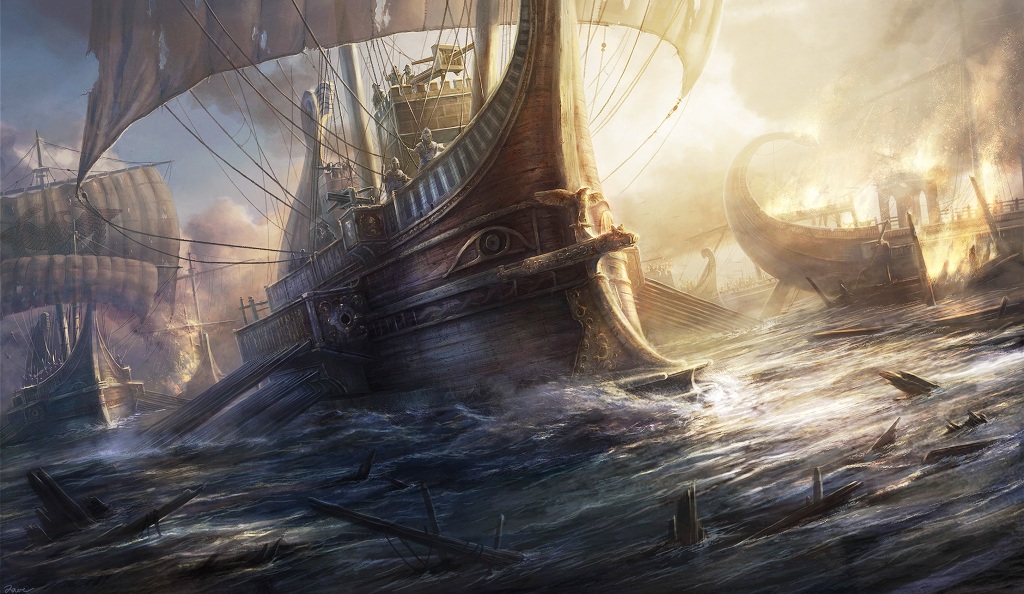Actium (battle)
The Battle of Actium took place in 31 BC at the mouth of the Ambracian Gulf, situated alongside the Ionian Sea, in close proximity to the former Roman colony of Actium. This significant conflict emerged as a consequence of Octavian's successful persuasion of the Romans to declare war against Cleopatra in 32 BC.
Contents
In the lead-up to the battle, Cleopatra and Mark Antony, wielding both an army and a formidable combined fleet, wrested control of the Bay of Actium. The Roman naval forces, led by Agrippa, retaliated by establishing a blockade around the Egyptian fleet, compelling them to engage in combat. As the battle raged on, Cleopatra made a dramatic escape from the scene, while Mark Antony abandoned his troops to pursue her. This pivotal turn of events sealed the fate of the conflict. Consequently, Agrippa and Octavian achieved a relatively uncomplicated victory, with the outcome of the battle never truly in doubt. This triumph played a crucial role in reshaping the course of history.
Size of Forces
Antony's naval force was comprised of approximately 140 ships, while Octavian commanded a fleet of 260 vessels. Despite Antony having access to potentially 500 ships, he faced logistical challenges in adequately manning and deploying this larger fleet for the battle. The majority of Antony's vessels were formidable "octares galleys," distinguished by their capacity to carry about 200 heavily armed marines, archers, and a minimum of six ballistae each. In contrast, Octavian's fleet consisted of smaller "Liburnian" ships.
However, Antony's disadvantage lay in the fact that his ships were largely isolated from one another during the battle. This vulnerability left them susceptible to boarding attacks, as Octavian's forces could overwhelm individual ships without the support and coordination enjoyed by the Roman fleet. The size of Antony's fleet ultimately did not translate into a decisive advantage due to these tactical limitations.
Aftermath
Following the Battle of Actium, Octavian, determined to secure his authority, pursued Mark Antony and Cleopatra to Egypt. In a subsequent conflict that unfolded over the course of a year, Octavian's forces prevailed. Mark Antony and Cleopatra, recognizing the dire circumstances, chose to end their own lives rather than face capture or defeat. This tragic turn of events marked the conclusion of their alliance and their lives.
Octavian's victory in Egypt solidified his grip on power and enabled him to consolidate sole control over Rome. He would go on to assume the title of "Augustus" and lay the foundations for the Roman Empire, effectively marking the end of the Roman Republic. This pivotal moment in history marked the beginning of the Roman Imperial era, with Augustus as its first emperor.
